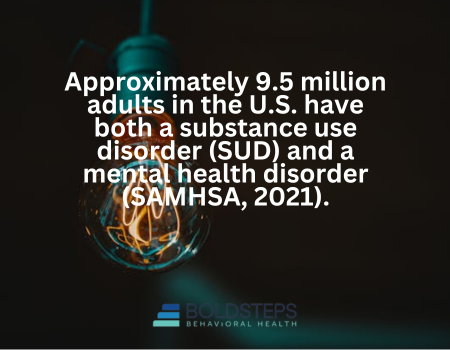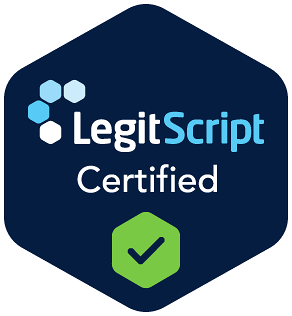Addiction is rarely a standalone condition. Many individuals battling substance use disorders also face underlying mental health challenges, such as anxiety, depression, PTSD, or bipolar disorder. This co-occurrence, known as dual diagnosis, requires a comprehensive approach to treatment that addresses both conditions simultaneously. Without treating the mental health disorders fueling the addiction—or the addiction exacerbating mental health symptoms—recovery can feel incomplete, and the risk of relapse remains high.
At Bold Steps Behavioral Health, we specialize in Dual Diagnosis Treatment, providing personalized care plans that integrate mental health support with substance use recovery. Whether you’re seeking an Addiction Treatment Program, a Partial Hospitalization Program, or a Virtual Treatment Program, our evidence-based approaches are designed to meet you where you are and guide you toward lasting recovery.
Understanding Dual Diagnosis
Dual diagnosis refers to the simultaneous presence of a substance use disorder (SUD) and a mental health disorder. These two conditions often interact, making it difficult to address one without treating the other. For example, someone with severe anxiety might use alcohol as a coping mechanism, leading to dependence. Conversely, substance use can worsen or even trigger mental health symptoms, creating a cycle that’s hard to break.
How Common is Dual Diagnosis?
- Approximately 9.5 million adults in the U.S. have both a mental health disorder and a substance use disorder (SAMHSA, 2021).
- Individuals with mental health conditions are twice as likely to develop a substance use disorder compared to those without mental health challenges.
Common Mental Health Disorders in Dual Diagnosis
- Depression: Persistent feelings of sadness and hopelessness, often leading to self-medication with alcohol or drugs.
- Anxiety Disorders: Conditions like generalized anxiety disorder (GAD) or social anxiety often drive individuals to use substances to manage overwhelming feelings.
- Post-Traumatic Stress Disorder (PTSD): Trauma survivors may turn to substances to numb emotional pain or flashbacks.
- Bipolar Disorder: Intense mood swings can lead to erratic substance use during manic or depressive episodes.
- Schizophrenia: Individuals may misuse substances in an attempt to manage symptoms of psychosis or isolation.
Why Dual Diagnosis Matters in Addiction Recovery
Addressing only one condition—either the addiction or the mental health disorder—often leads to incomplete recovery. Treating both simultaneously through dual diagnosis programs ensures a comprehensive approach that targets the root causes of addiction while promoting overall mental and emotional well-being.
1. The Connection Between Mental Health and Addiction
Mental health disorders and addiction frequently reinforce one another, creating a vicious cycle:
- Self-Medication: Many individuals use drugs or alcohol to alleviate symptoms of anxiety, depression, or trauma. However, this temporary relief often leads to dependency, worsening both conditions.
- Substance-Induced Mental Health Disorders: Prolonged substance use can trigger or intensify mental health symptoms, including paranoia, depression, and psychosis.
Dual diagnosis treatment breaks this cycle by addressing both conditions concurrently.
2. Reduced Risk of Relapse
Untreated mental health conditions can act as triggers for relapse. For instance, unmanaged anxiety might drive someone back to substance use during stressful situations. Dual diagnosis treatment equips individuals with tools to manage their mental health, significantly reducing the likelihood of returning to old habits.
3. Improved Quality of Life
Recovery isn’t just about abstinence—it’s about creating a life worth living. Treating co-occurring disorders helps individuals:
- Gain emotional stability.
- Build healthier relationships.
- Restore physical and mental health.
- Develop confidence and self-worth.
4. Holistic and Comprehensive Healing
Dual diagnosis programs don’t just treat symptoms; they aim to address the underlying causes of addiction and mental health challenges. This holistic approach fosters deeper healing and personal growth.
Key Components of Dual Diagnosis Treatment
At Bold Steps Behavioral Health, we understand that recovery is a highly individualized journey. Our dual diagnosis programs are designed to provide personalized care that integrates mental health support with addiction recovery.
1. Medical Detox Program
For individuals struggling with severe addiction, detoxification is often the first step. Our Medical Detox Program provides:
- 24/7 Medical Supervision: Ensuring a safe withdrawal process while managing symptoms of both physical and emotional distress.
- Medication-Assisted Treatment (MAT): Using medications to stabilize mood, reduce cravings, and alleviate withdrawal symptoms.
- Emotional Support: Addressing the anxiety and fear that often accompany detox.
2. Evidence-Based Therapies
Our programs incorporate therapies proven to be effective for dual diagnosis, including:
- Cognitive Behavioral Therapy (CBT): Helps individuals identify and change negative thought patterns that contribute to both mental health issues and addiction.
- Dialectical Behavior Therapy (DBT): Focuses on emotional regulation, interpersonal effectiveness, and stress management.
- Trauma-Informed Care: Recognizes and addresses the impact of trauma on mental health and substance use.
- Motivational Interviewing (MI): Encourages individuals to build motivation and confidence in their recovery journey.
3. Comprehensive Levels of Care
We offer a full continuum of care to meet individuals at every stage of recovery:
- Partial Hospitalization Program (PHP): A structured program providing intensive therapy, medical monitoring, and skills training during the day, allowing individuals to return home in the evenings.
- Intensive Outpatient Programs (IOP): Flexible treatment designed for individuals balancing recovery with work or family obligations.
- Outpatient Treatment Program: Offers continued support through regular counseling and therapy sessions for those transitioning from higher levels of care.
- Virtual Treatment Program: Delivers high-quality care online, making therapy accessible for individuals unable to attend in person.
4. Integrated Behavioral Health Treatment
Mental health conditions are an integral part of addiction recovery. Our Behavioral Health Treatment in New Hampshire integrates psychiatric care, individual therapy, and group counseling to address mental health challenges holistically.
5. Family Involvement
Family dynamics often play a significant role in both addiction and recovery. Through family therapy, we help loved ones:
- Understand the connection between mental health and addiction.
- Learn how to provide effective support.
- Rebuild trust and improve communication.
6. Relapse Prevention and Aftercare
Long-term recovery requires ongoing support. Our dual diagnosis programs emphasize relapse prevention through:
- Coping Mechanisms: Teaching individuals to manage triggers and stress without substances.
- Support Networks: Encouraging participation in peer support groups like Alcoholics Anonymous (AA) or Narcotics Anonymous (NA).
- Aftercare Planning: Developing a roadmap for continued success, including therapy, support groups, and life skills training.
Why Choose Bold Steps Behavioral Health for Dual Diagnosis Treatment?
At Bold Steps Behavioral Health, we are committed to helping individuals achieve long-term recovery through comprehensive, compassionate care. Here’s what sets us apart:
1. Experienced Team
Our licensed therapists, addiction specialists, and medical professionals are experts in treating co-occurring disorders.
2. Full Continuum of Care
From detox to outpatient services, our programs ensure seamless transitions and consistent support throughout recovery.
3. Individualized Treatment Plans
No two journeys are the same. We tailor our programs to address each individual’s unique challenges and goals.
4. Holistic Healing
We focus on treating the whole person—mind, body, and spirit—ensuring lasting recovery and improved quality of life.
5. Safe and Supportive Environment
Located in New Hampshire, our facilities provide a welcoming, judgment-free space for individuals to heal and grow.
Conclusion
Dual diagnosis treatment is essential for individuals struggling with both addiction and mental health disorders. By addressing these interconnected challenges simultaneously, individuals can achieve not only sobriety but also emotional stability and overall well-being. At Bold Steps Behavioral Health, we provide the tools, support, and expertise needed to guide individuals toward a brighter future.
Take the first step today. Call us at (603) 915-4223 or visit Bold Steps Behavioral Health to learn more about our Dual Diagnosis Treatment, Addiction Treatment Program, and other services. Together, we can help you build a healthier, more fulfilling life.
FAQ on Why Dual Diagnosis Matters in Addiction Recovery
Why is dual diagnosis important in addiction recovery?
Dual diagnosis treatment addresses both mental health and addiction together. When only one condition is treated, the risk of relapse increases because untreated mental health issues can trigger substance use, and vice versa. Treating both conditions leads to a more comprehensive and lasting recovery.
How common is dual diagnosis?
Approximately 9.5 million adults in the U.S. have both a mental health disorder and a substance use disorder (SAMHSA, 2021). Mental health conditions like anxiety, depression, and trauma often co-occur with substance use disorders.
What types of mental health disorders are commonly part of dual diagnosis?
Common mental health disorders that co-occur with addiction include:
- Depression
- Anxiety disorders
- Post-traumatic stress disorder (PTSD)
- Bipolar disorder
- Schizophrenia
How does Bold Steps Behavioral Health treat dual diagnosis?
At Bold Steps Behavioral Health, we offer comprehensive Dual Diagnosis Treatment that integrates mental health care with addiction recovery. Our programs include therapies like Cognitive Behavioral Therapy (CBT), Dialectical Behavior Therapy (DBT), and trauma-informed care. We also offer Medical Detox, PHP, IOP, and Virtual Treatment Programs to support recovery at every level.
What are the signs that someone needs dual diagnosis treatment?
Signs that someone may need dual diagnosis treatment include:
- Using substances to manage mental health symptoms.
- Persistent feelings of anxiety, depression, or trauma alongside substance use.
- Difficulty managing mental health despite abstaining from substances.
- A history of relapse due to untreated mental health issues.
Can dual diagnosis treatment help prevent relapse?
Yes. Dual diagnosis treatment addresses the root causes of addiction and mental health issues, reducing the risk of relapse by teaching individuals how to manage both conditions effectively.



